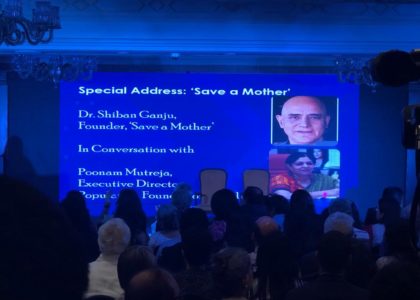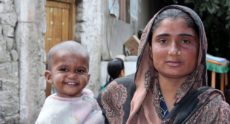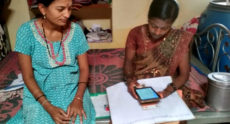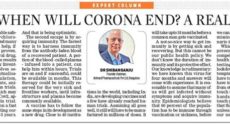-
It is not too farfetched to say that the health of a mother is the responsibility of the entire community. While it is the mother who is the one who gives birth to the new life and is central to the child’s upbringing, everyone around here has a role to play in ensuring the best for the child.
Save a Mother Foundation has been working tireless for the cause of improving maternal and child health indicators in India. Our work takes us to different communities and gives us the chance to interact with a range of women who share their stories about the challenge they face during pregnancy, childbirth, and as a mother. These insights and experiences have been a foundation of our maternal and child health programs.
We also understand from our interventions that as critical as it is to ensure awareness and access to high-quality services to ensure safe motherhood, it is just as relevant to take the conversation on maternal health forward. We got such a chance during the Times of India DesignX Festival. The event took place in New Delhi on the 14 and 15 of September 2019 where experts and influencers from all walks of life came forward to share thought-provoking conversations that have an impact on the future of the country. Save a Mother Foundation’s Founder, Dr. Shiban Ganju was invited to this prestigious event to share his expert thoughts and insights in conversation with the Executive Director of Population Foundation India, Ms. Poonam Mutreja.
The resulting discussion carried forward by two leading experts in the field of maternal health brought to the fore a deep understanding of the current scenario of maternal health in India. Dr. Shiban shared his motivations behind having started SAM and pointed out that Maternal Mortality Rate has been dropping in India over the years with recent data showing a further decline to 130 in 2014-16 from 167 in 2011-13. However, he stressed the fact that these rates still remain high and there is a need for everyone to join hands to improve the situation. This is where SAM’s work is even more significant because our intervention has been designed, to not just be cost-effective, but also scalable and replicable.
Moreover, the SAM model is all the more significant because it addresses the socio-cultural issues surrounding adolescence, pregnancy, and motherhood. SAM’s programs on increasing age of marriage for girls and contraceptive uptake empower women so that the burden of childbirth and childcare is not wholly taken on by the mother and childbirth is rather an informed decision and choice of the family than an accident or unwanted births. Over the years, we have seen a significant change in the communities, with the number of girls marrying before the age of 18 reducing by 99% in intervention areas.
Dr. Ganju acknowledged that there are barriers that come into play when we talk about maternal health but it is also important to address the weaknesses in the public health systems. Systems improve as more demand for services is created and a core part of SAM’s work focuses on increasing demand for health services in rural areas by increasing awareness and changing behaviors in rural sectors.
The discussion was engrossing for the entire group and pointed to a way forward to those who are keen to do something to make a difference. Dr. Ganju encouraged people from all walks of life to join the cause and do their bit to ensure that the mothers of India stay safe and get all the support that they need.













